In our bodies there is a vital need for enjoyment, and at the same time there are reactions generated by these bodies in order to resist the imposition of conditions and needs unconnected to us and our needs.
The second session of ‘Pre-Demonstration GOZADERA’ unfolds and generates itself based on the needs for existing in context, and by means of dance, singing, performance and other practices for individual and collective enjoyment. The aim is to host enjoyment and resistance pulsions so as to get them together in a greater collective force that has been developing since the previous session, upholding enjoyment during the GOZADERA Demonstration called for 20.02.2021 in Barcelona.
The ‘Pre-Demonstration’ sessions belong to the proposal GOZADERA, being it the implementation of the research of Catalyst 1 on the topic Coexistence spaces and use of communal spaces. (Catalysts are workgroups of collective research and action of the project Te( n ) cuidado, working around four conceptual and practical main foci, all of them facilitating and fostering intersection of knowledges, exchange, imagination and generation of joint experiences with communities asked to be part of the project).
Pre-Demonstration Session 2
Pre-Demonstration Session 2 is conceived as a space for the meeting of joyous bodies oppressed during the year of pandemic and post-pandemic effects, in the framework of the health alert generated by COVID-19. In Lina’s words, a “juntanza”, a get-together in order to share different views about enjoyment, to propose practices or strategies for the individual and collective “gozadera”, articulating these resistance practices for the great GOZADERA Demonstration.
In this session, we meet migrant and allied bodies who have been and still are imagining, creating and implementing different strategies for collective care, both during and after the pandemic. Among them, “Dancing to resist” as a practice of resistance for communities historically oppressed by necropolicies imposed by nation states, resisting the denial of their rights and a state of alarm that has failed to ensure any type of well-being, quite the opposite, it has revealed a significant humanitarian and affective unrest.
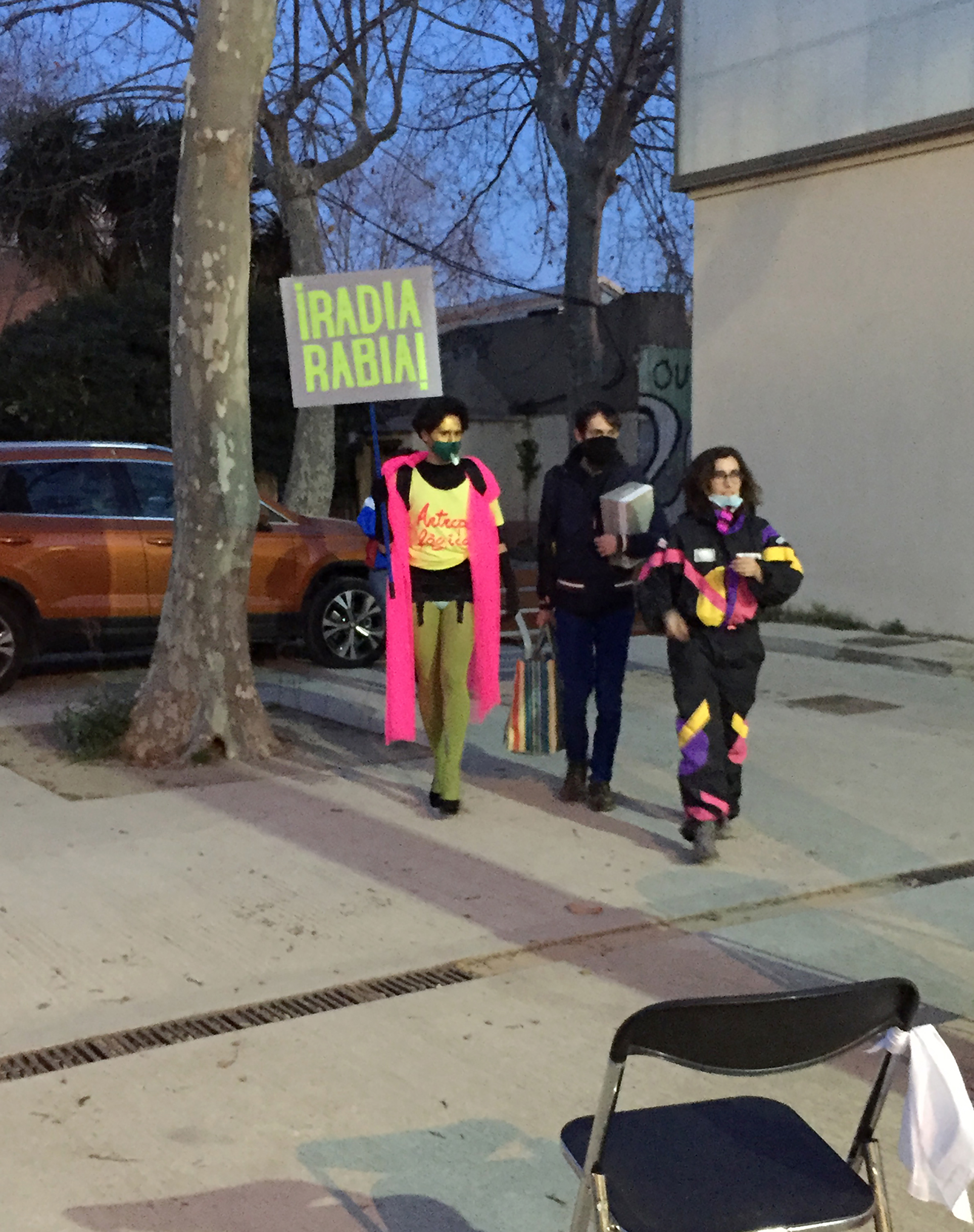
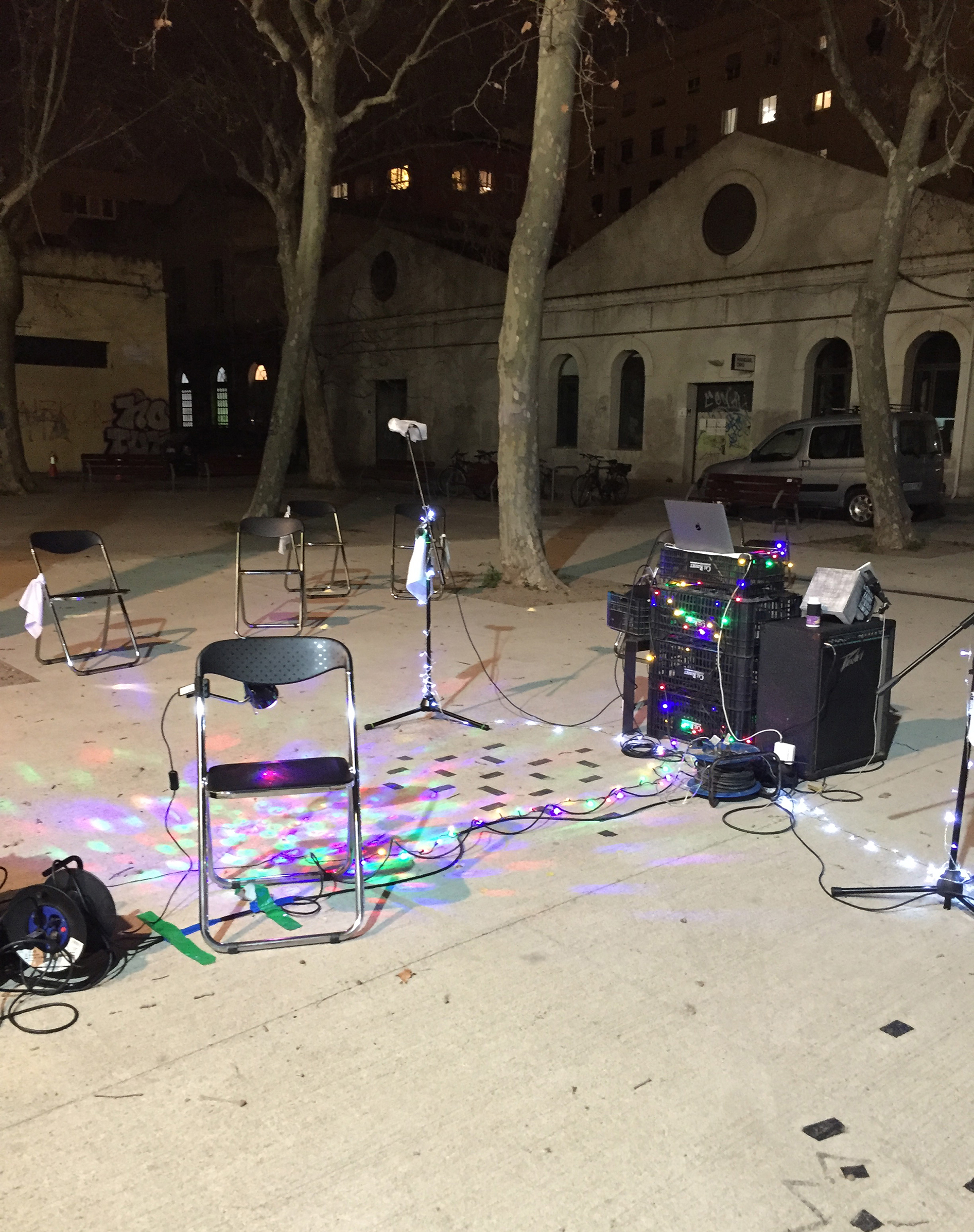
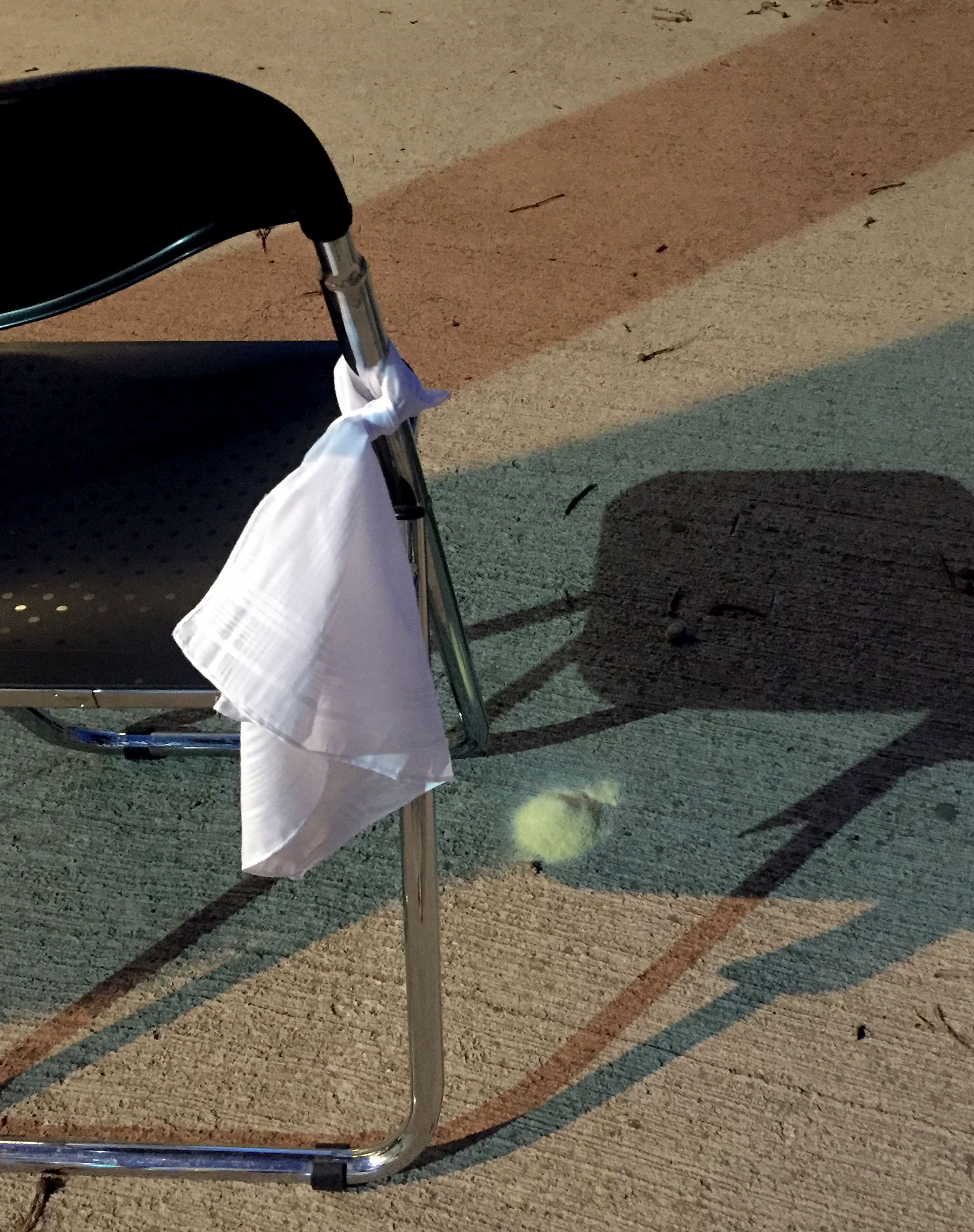
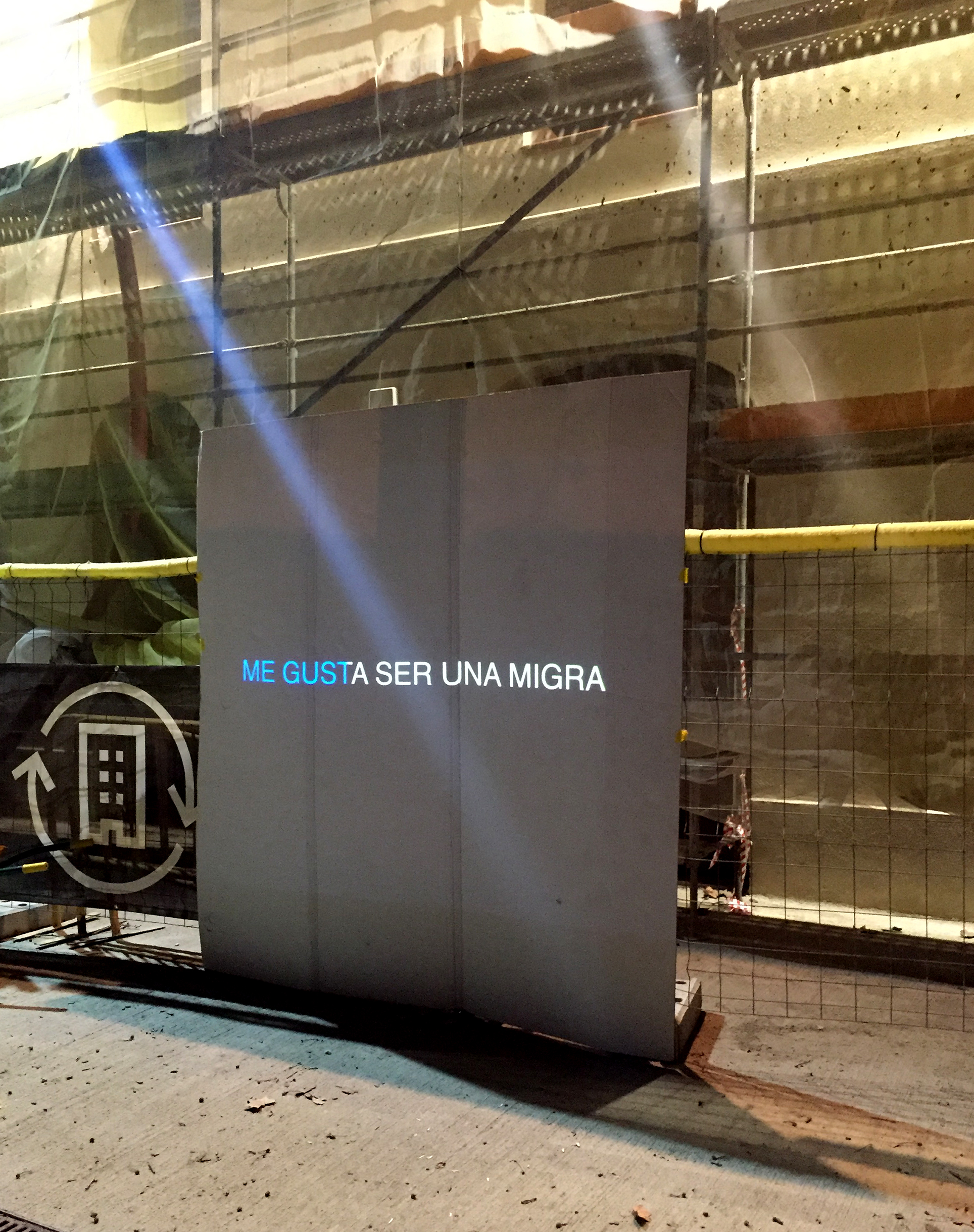
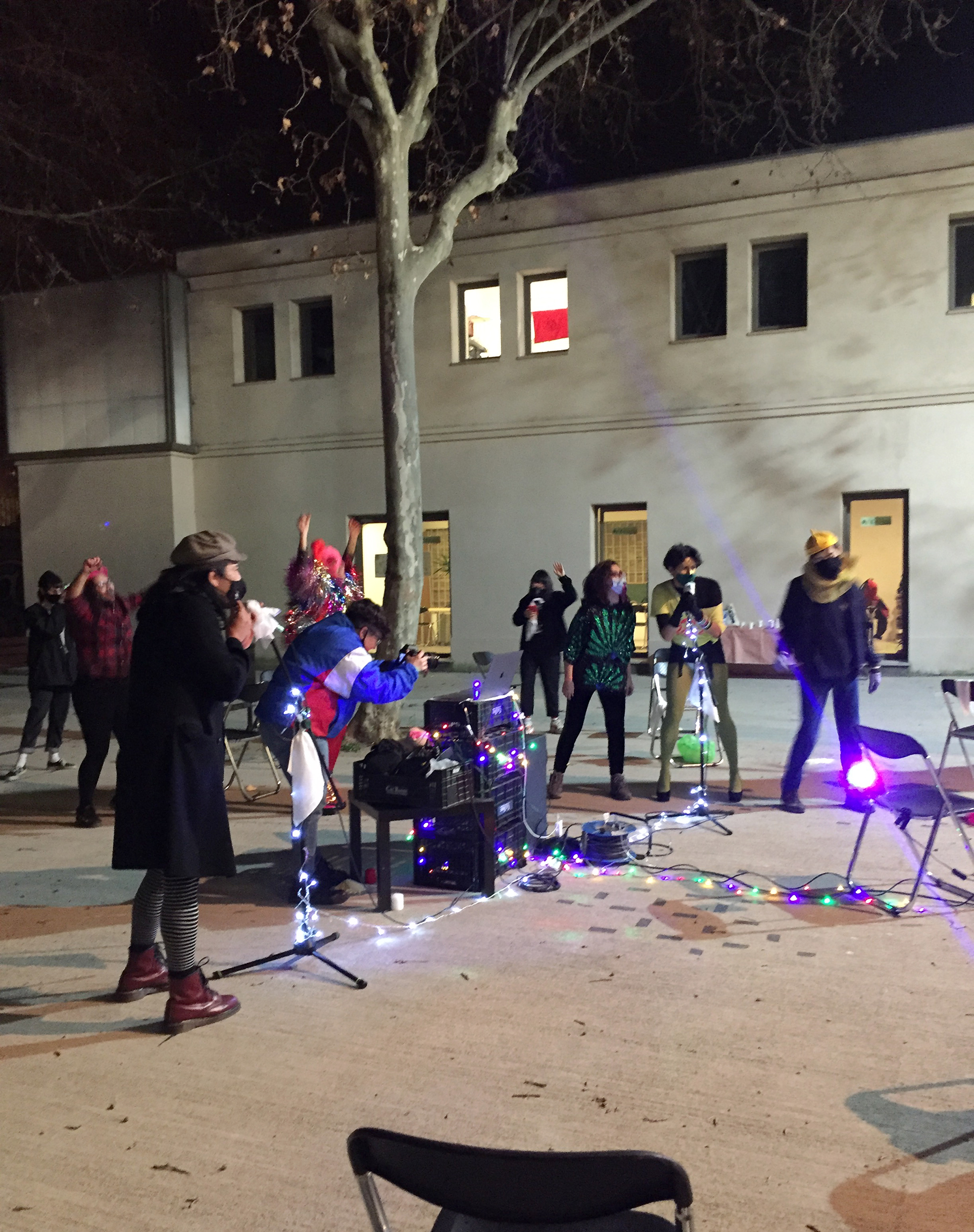
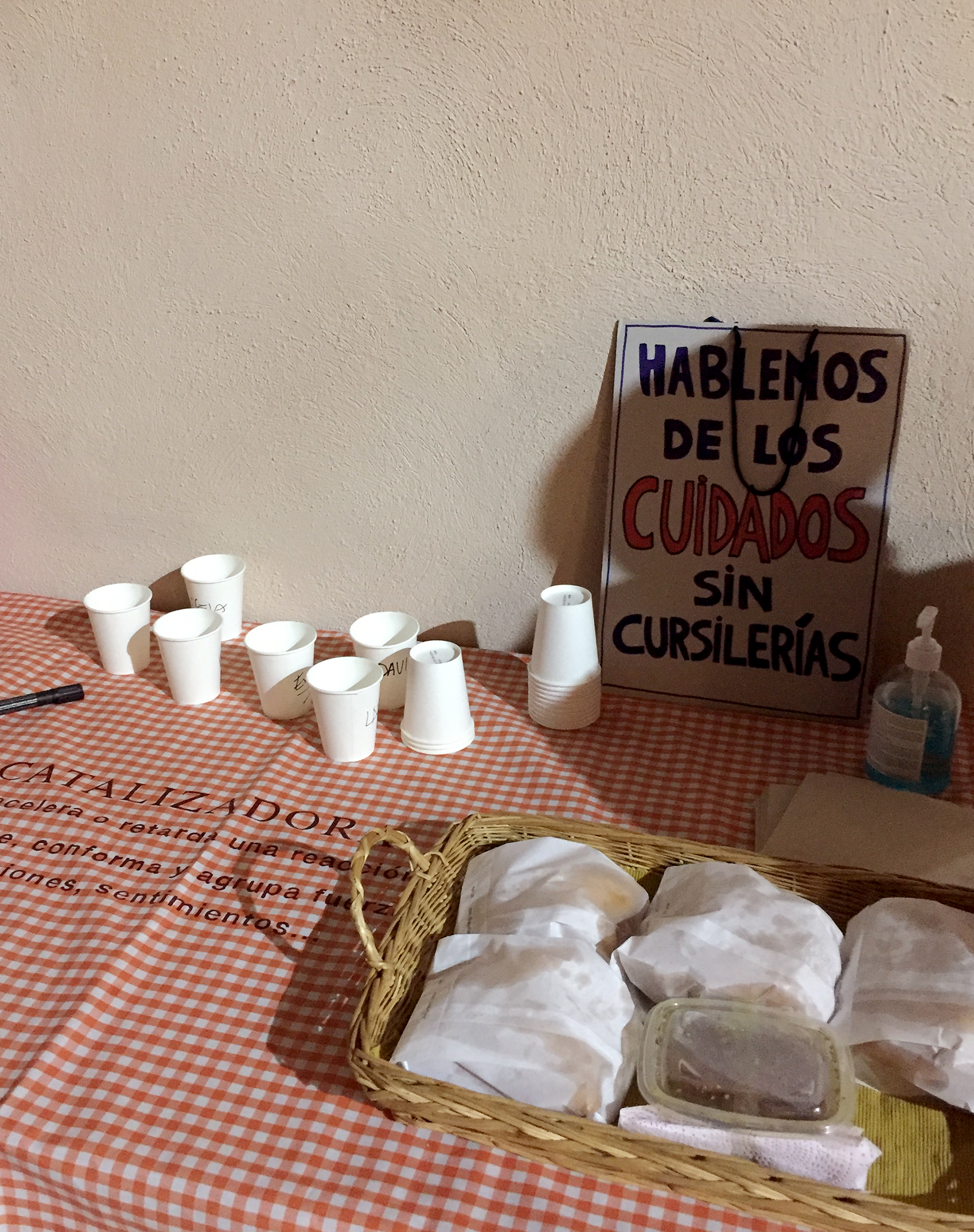
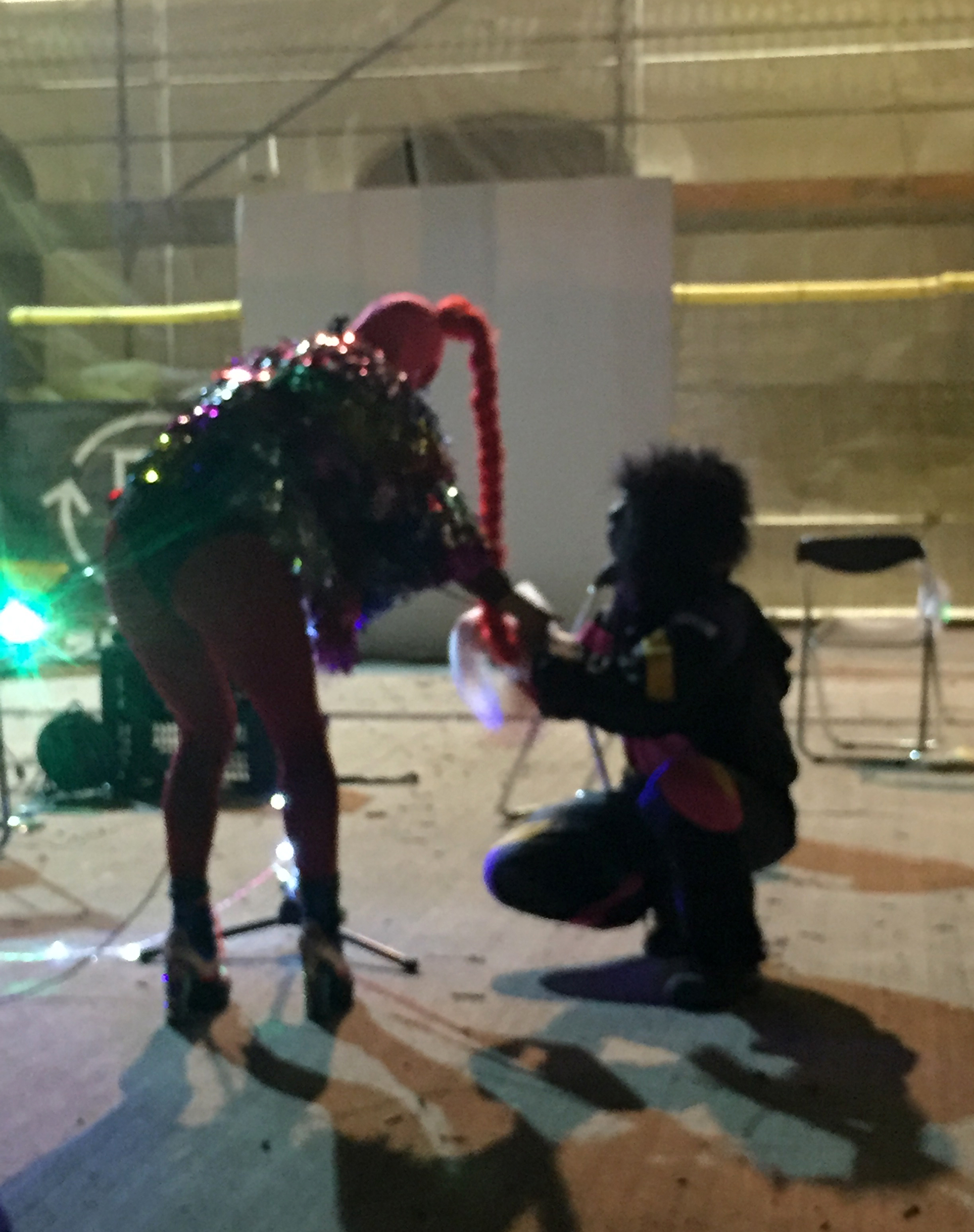
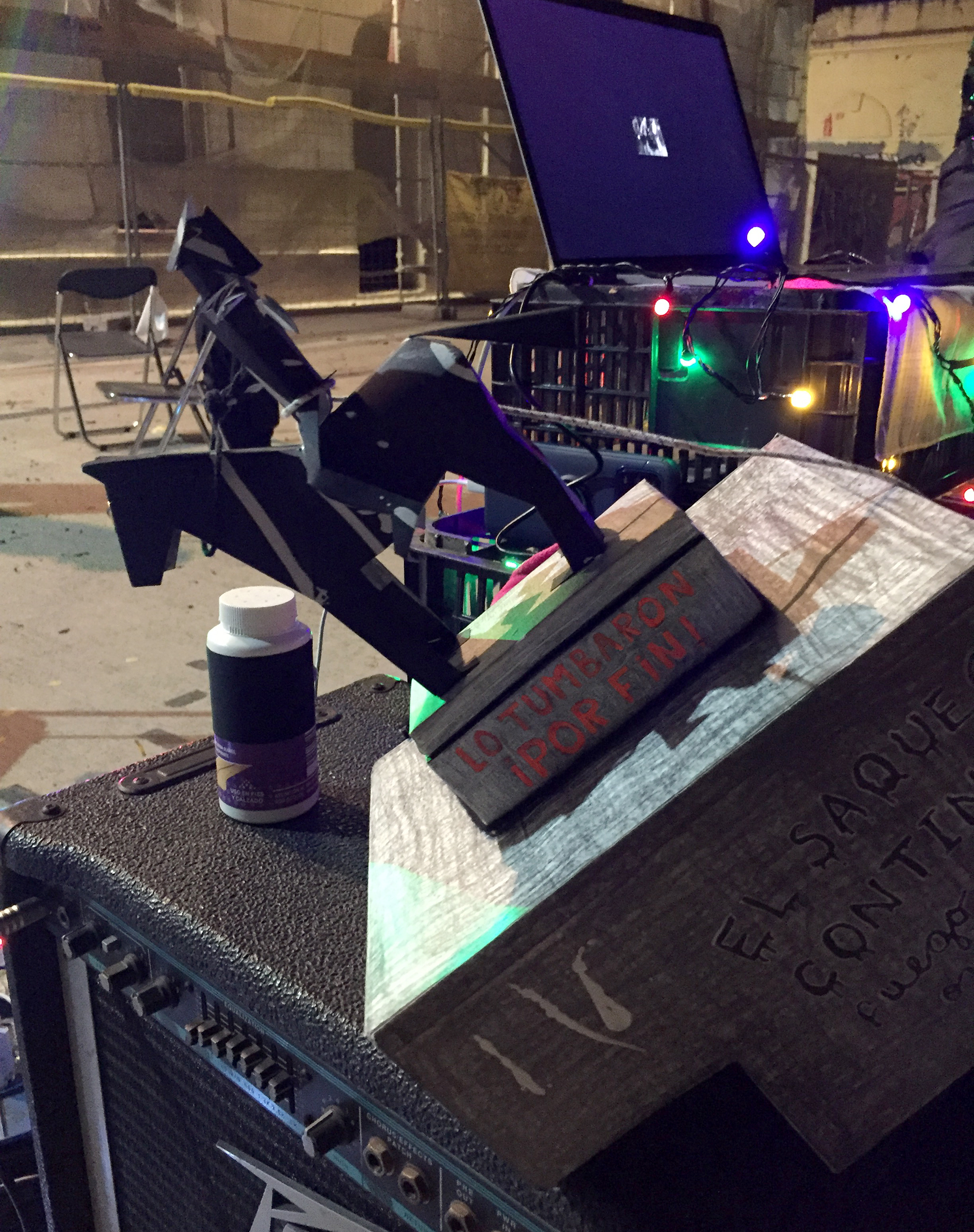
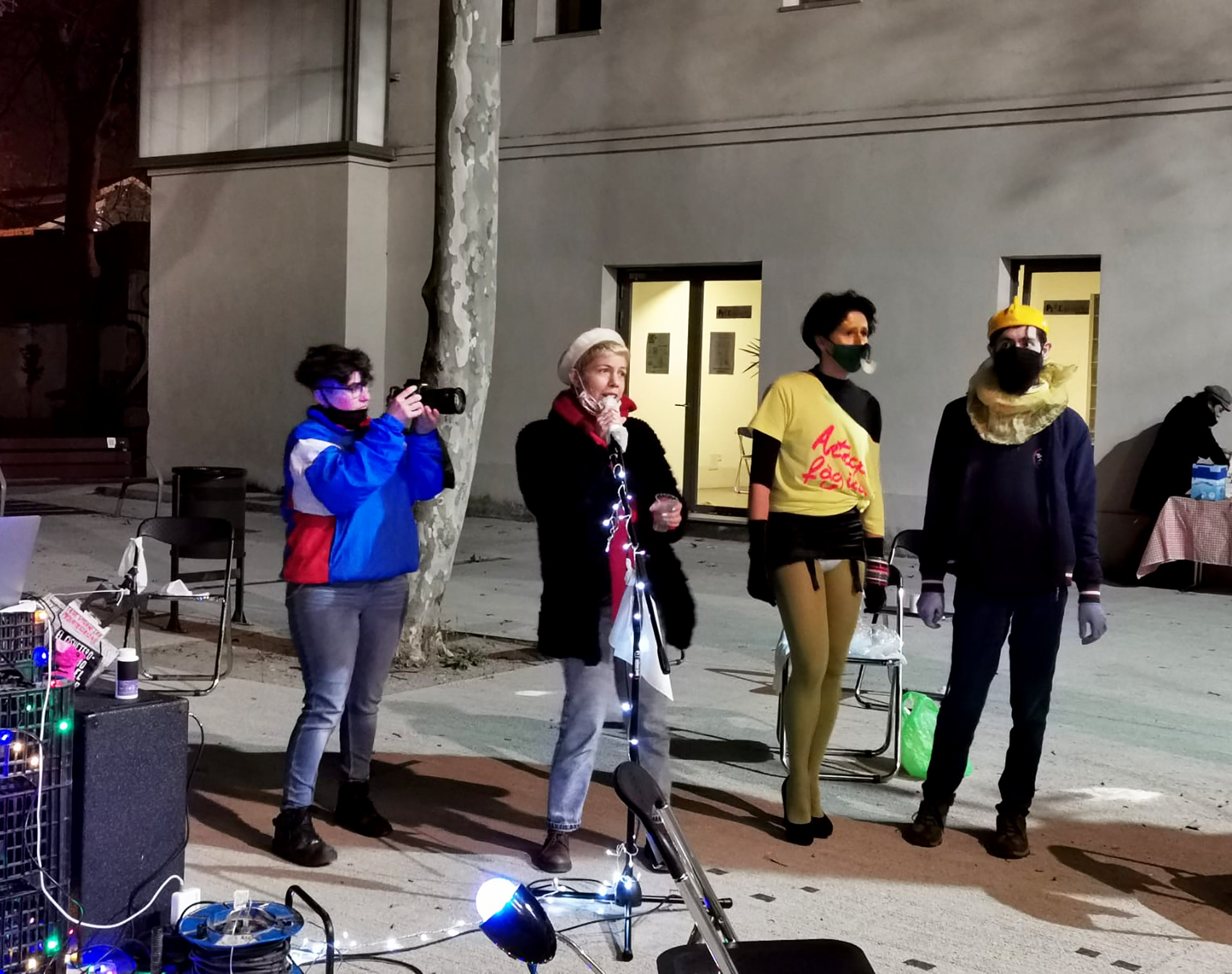
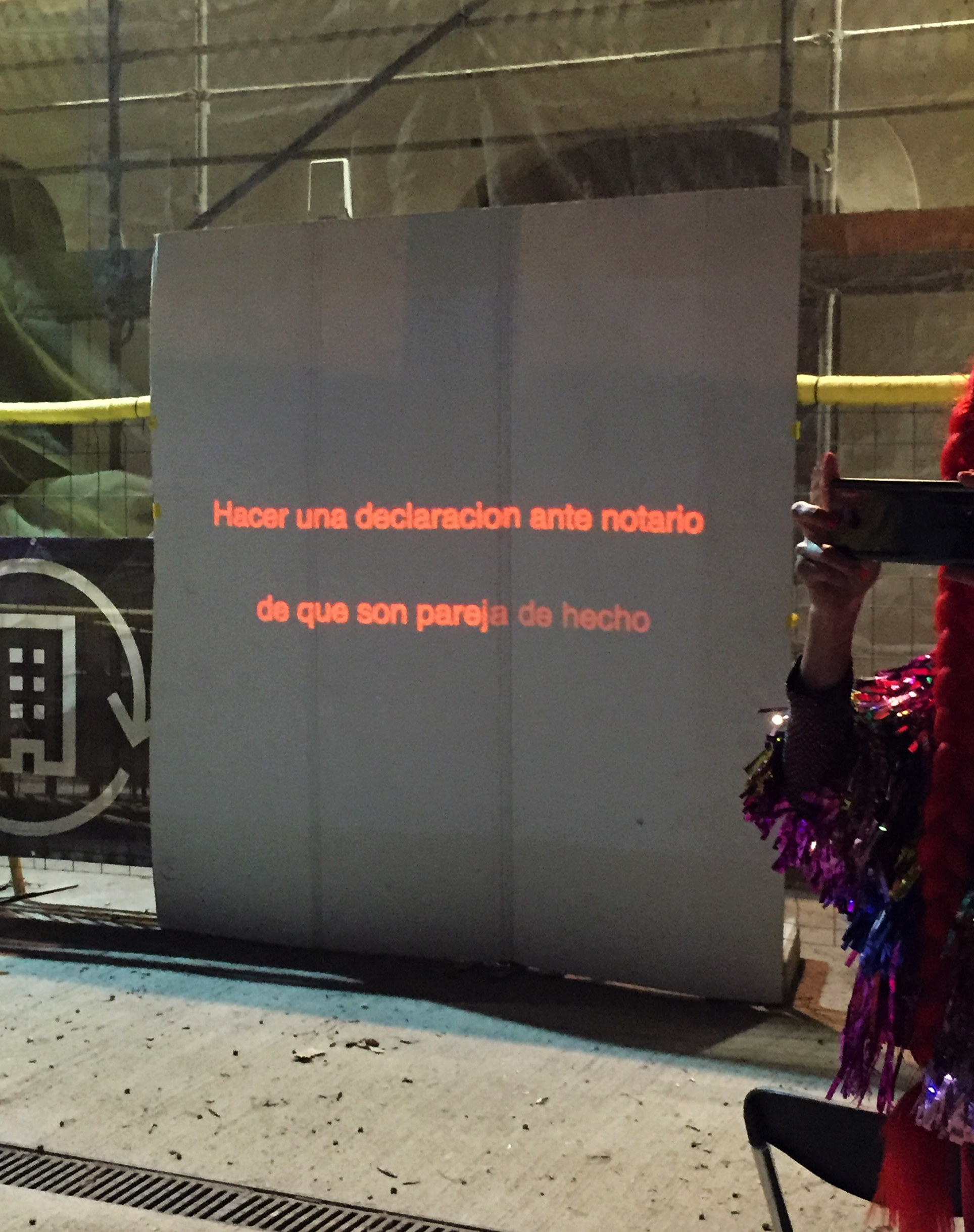
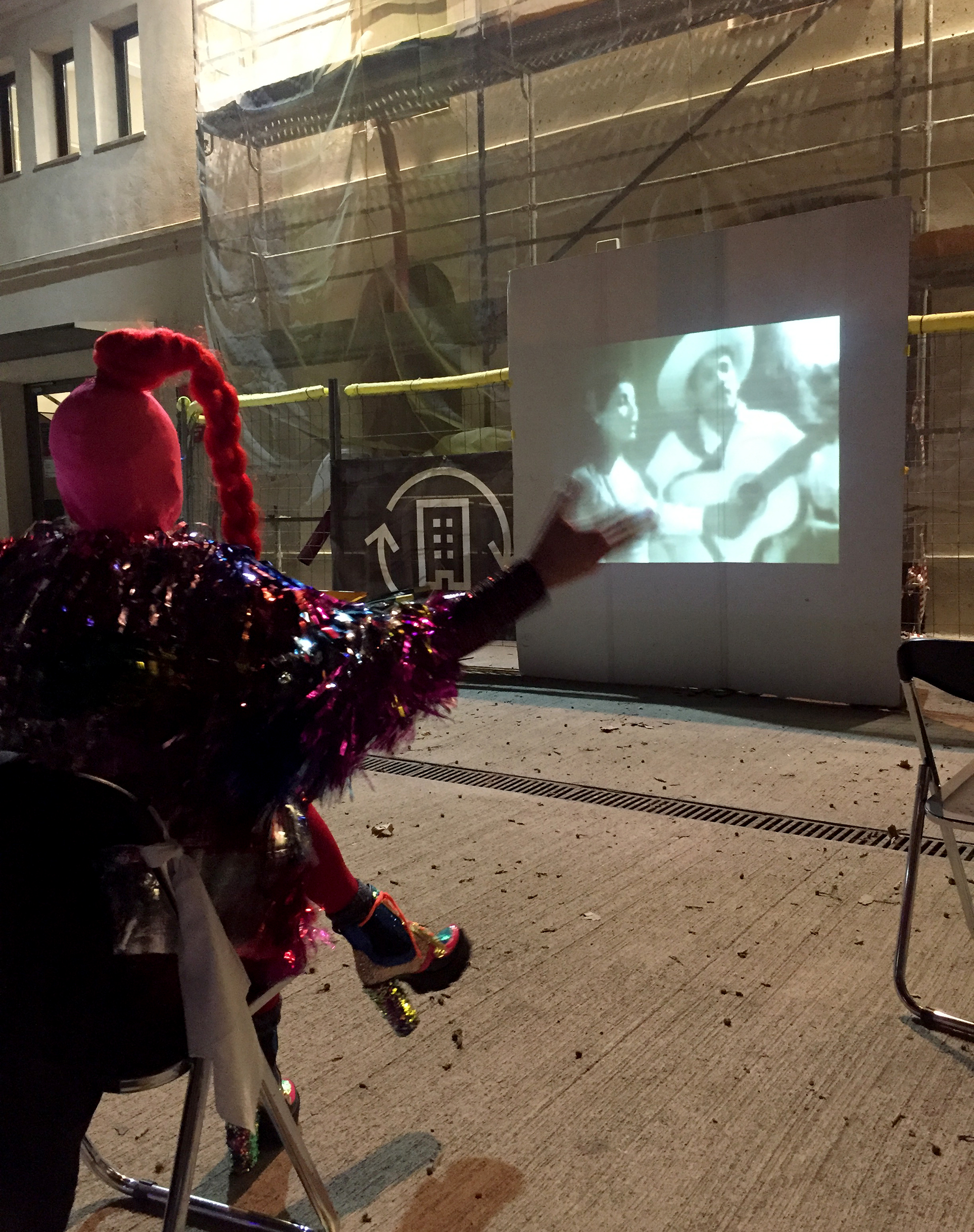
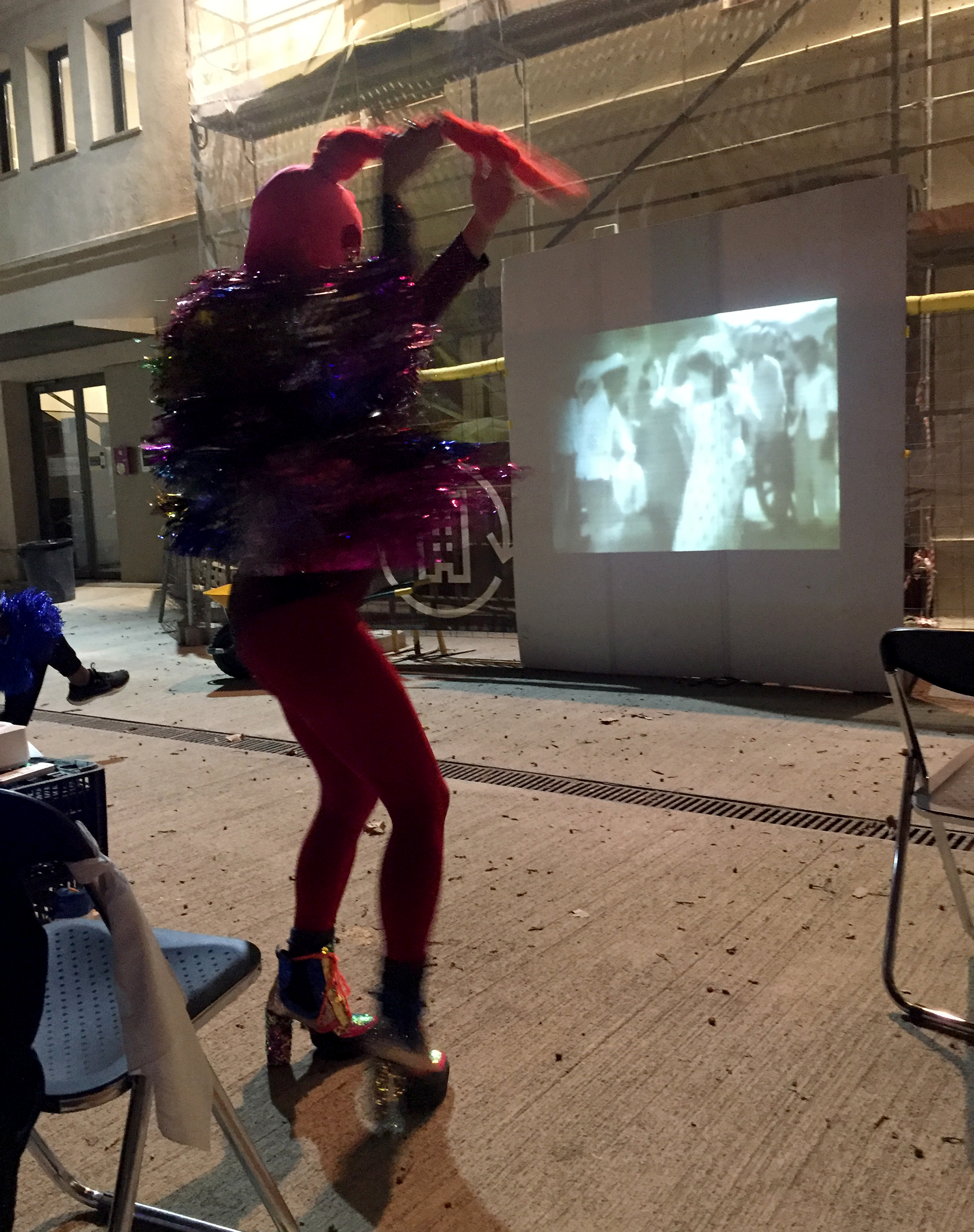
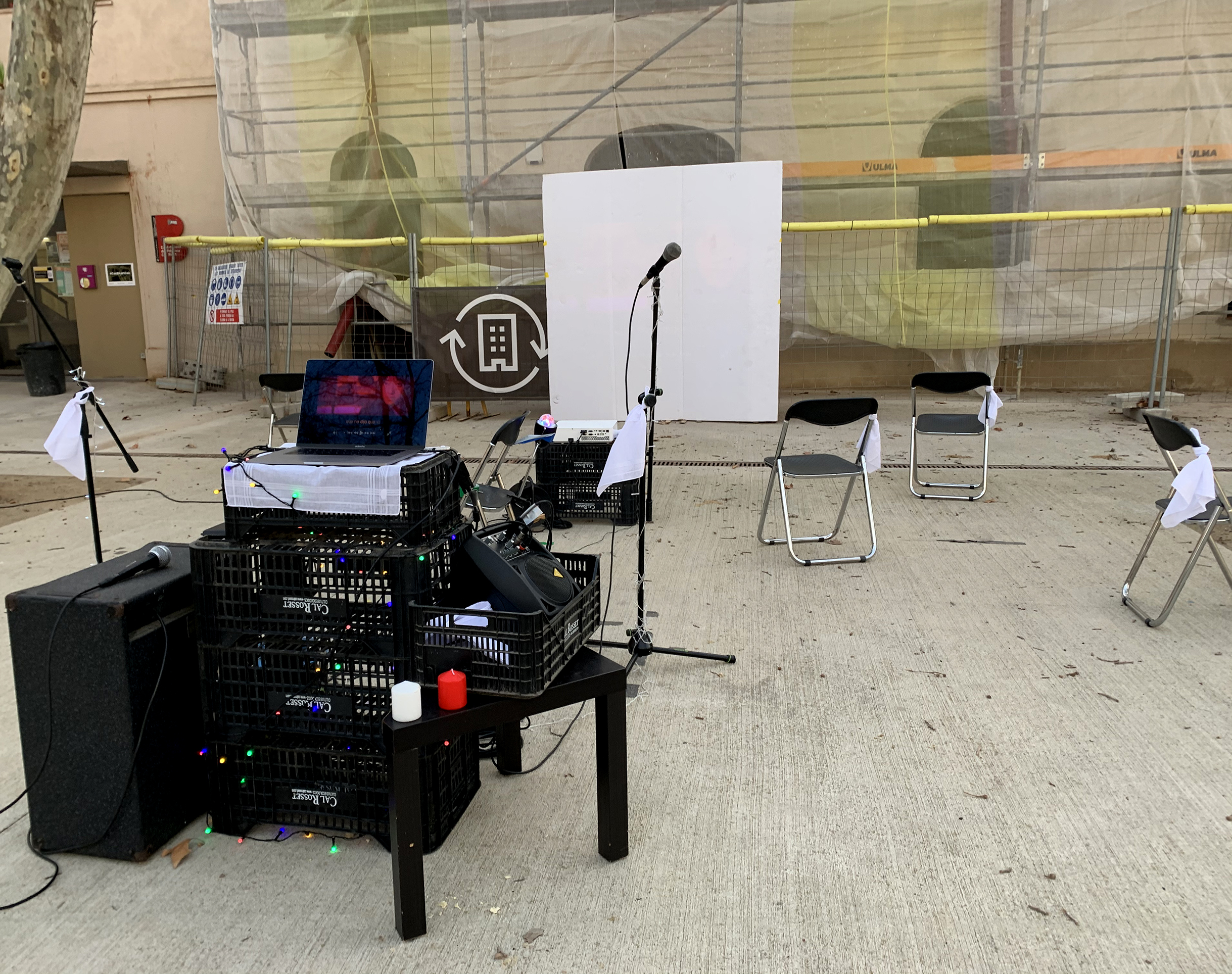
“Our bodies are living memory, substantial cultural memory oblivion-proof, oblivion of our cultural practices, which have always been traversed by the care and preservation of our bodies and territories, by the bonds between extended families and affective relationships. From within these memories, let’s keep in mind that civil society has rights, fundamental and cultural rights, which we all should be able to access in democratic states“.
In this Second Session, Lina López Ortiz suggests starting from the need to dance as a practice of resistance for historically oppressed communities, and as a practice of resistance to colonization. Colonization here is not only seen from a historical point of view, but also as a continuous practice that divides people and places them above or below themselves in a discriminatory way. She also suggests starting from how, being migrants and belonging to these oppressed communities, migrant bodies have reacted to the transformation of dance spaces since the beginning of the COVID-19 health alert in the city of Barcelona.
Within this framework, Pre-Demonstration Session 2 unfolds through FIVE INTERVENTIONS articulated as one, horizontally, with no top-down colonial power structure (no platform or stage), used as a space in which tools are provided. Thus, the Session “Dancing to resist” proposes that all participants make an effort to erase the boundary between the ones performing a given action and the ones receiving it, in the context of a project or an activity. A desire that connects with that of creating an open mic space in which we could all play those songs or videos that we wanted to listen to or dance together, in a club or in a bar, but that during this last year we have only been able to dance at home.
The following guests are the creators of the five interventions that are the body of the Session:
is a Colombian dancer and choreographer-ethnopedagogue, coming from the Cauca Pacific area. His directed dance explains the context of the rhythms of the Colombian Pacific, as the Currulao, Bunde, chirimía or salsa choque.
is a project initiated by Julieta Lara, migrant, mother, multidisciplinary creator and 90% functionally diverse. This is a project of healthy food and self-management born out of the urge for making tools from the migrants’ realities, times and capacities. Julieta cooked the food for Session 1 and 2, and also for the GOZADERA Demonstration.
is the queen of “electrodirtpop”, a genre of her own, where she connects music, performance, dance and visuals, mixing tropical electro clash. A transgressive, raver and critical music proposal.
is a transvestite artist audiovisual-drag, independent curator and cultural infector. Her performative work comes from spoken word with an electronic base. She is currently conducting research on enjoyment and cruising in pandemic times.
(Samu-el Céspedes, Violeta Ospina and David) is a research and experimentation project, compiling songs of migration and resistance processes against necropolitics and institutions and companies dealing with migration control in the continent.
* Video clips have been produced by Suversión as documentation of Pre-Demonstration Session 2, and later on they were used as an invitation for participating in the GOZADERA Demonstration.
CULT OF ENJOYMENT
OC-CULT ENJOYMENT
FORCEFUL ENJOYMENT